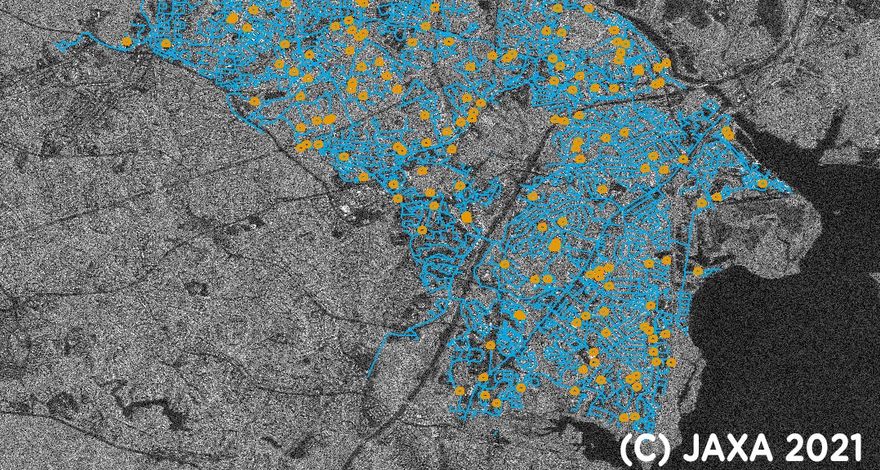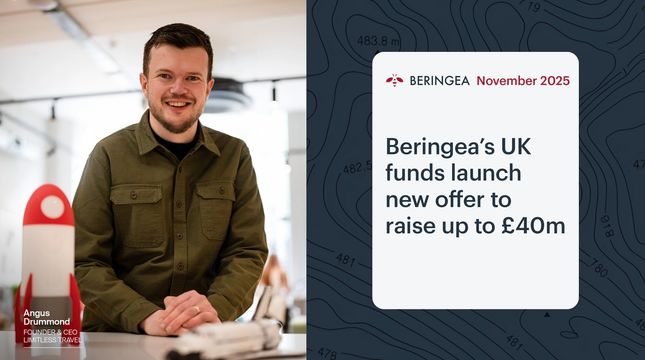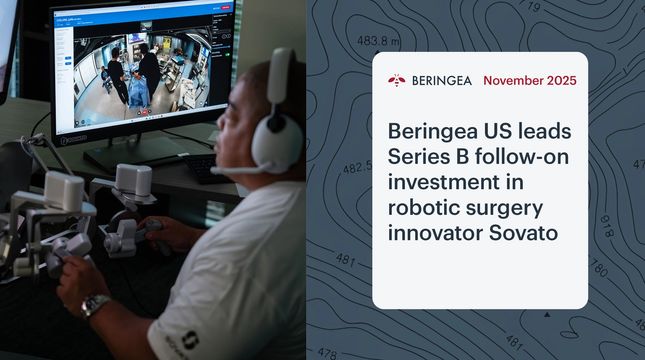Eyal Malinger takes a look at the latest addition to our U.K. portfolio: Utilis, a business bringing technology from Mars to build a sustainable future.
Water is a miraculous material. Both too much and too little water can have catastrophic consequences.
It is estimated that over 1bn people lack access to clean and safe water. Population growth and climate change are heightening this challenge, with the UN predicting that half of the world’s population could be living in areas facing water scarcity as soon as 2025. Access to water and sanitation is, therefore, one of the UN’s sustainable development goals.
On the flip side, too much ground moisture around train tracks causes derailments. Bridges, roads, buildings and dams can all suffer disastrous collapses due to water accumulation.
This all leads me to conclude that protecting water and ensuring that it is efficiently and securely transported to the population is a critical challenge. And yet, I was surprised to learn as part of the due diligence for our investment into Utilis that over 20% of drinking water in Europe is lost in distribution systems.
Enter Utilis: a start-up using satellite technologies first developed to find water on Mars, to protect water supplies (and other critical resources) on Earth. This article lays out a few of the reasons why we believe this business is truly out of this world.
From Mars to Earth: Applying satellite-based radar to find water up to 3m underground
Utilis was founded in 2013 by Lauren Guy, a scientist focused on atmospheric physics and dynamics who had previously studied the ability of a radar technology known as synthetic aperture radar (SAR) to provide data from space that could detect underground water on Mars.
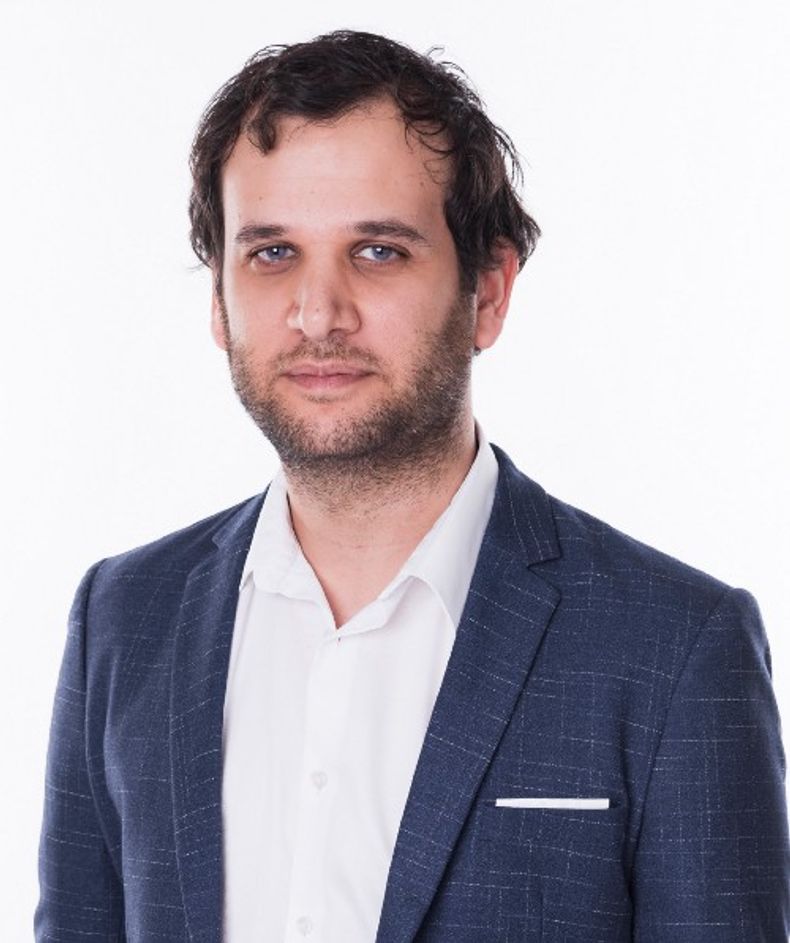
Lauren Guy, founder of Utilis
Having originally developed the patented algorithm that now underpins Utilis’ technology in search of Martian water, Lauren began harnessing satellites to spot underground leaks in water supplies around the world. Using this satellite-borne radar data, Utilis can identify treated water, waste, and rainwater up to 3m underground in urban and rural environments regardless of the weather conditions.
This is a significant departure from traditional methods of monitoring water distribution systems, which have normally relied upon physical sensors — a capital intensive approach — or manual checks by engineers — an inefficient approach. Utilis uses SAR sensors on satellites to filter out the signature of drinking water and locate likely leaks — not an easy task when it is sifting through a mass of ‘white noise’ from telecoms and other services.
Driving efficiency and creating value for utility companies
Utilis’ solution can yield up to 10x better productivity (measured as leaks founds per crew per day) compared to traditional acoustic methods used by engineers walking along distribution pipelines. The California Energy Commission commissioned a report comparing Utilis to the leading acoustic sensor technology. The report showed Utilis’ technological superiority, delivering 80% positive leak identification versus 40% for a state-of-the-art acoustic sensor while identifying 7x more leaks during the same time period.
This increase in productivity is vital as leaks from the distribution network pose a significant and worsening problem for utility companies around the world. Countries in the developing world suffer from vast wastage, often as high as 40%, showing both the scale and global footprint of the problem.
Surprisingly, at least to us, was the fact that most water loss is the result of many small leaks (knowns as background leaks). Major leaks do not require detection — you will know when they happen because they will flood streets and houses. On average, only 5% of water leaks actually reach the surface, but these small leaks tend to become larger over time, causing further damage. This creates an imperative for utility companies to spot leaks early, typically when small and underground.
Addressing the financial and ecological importance of water preservation
Utilis’ patented approach is already used today by some of the world’s leading water utilities and infrastructure providers. To date, Utilis has completed more than 400 projects worldwide across 55 countries identifying 30,000 verified leaks. Annually, Utilis has saved 7bn gallons of water, 17,000 MWh of energy, and 11,000 metric tons of carbon dioxide emissions. This is a remarkable contribution by one start-up to the global sustainability crisis that we currently face.
Many of the water systems that feed a growing human population have become stressed, with many water sources drying up or becoming too polluted to use. At the current consumption rate, it is forecast that by 2025,[1] two-thirds of the world’s population may face water shortages.
Even today, a handful of US states — including New Mexico and California — are facing significant strains on their water supplies that will only intensify with global warming[2]. And yet, in Europe over 20% of treated water is lost in water distribution systems, of which 75% is recoverable3, creating a significant opportunity of national importance for participants in this market.
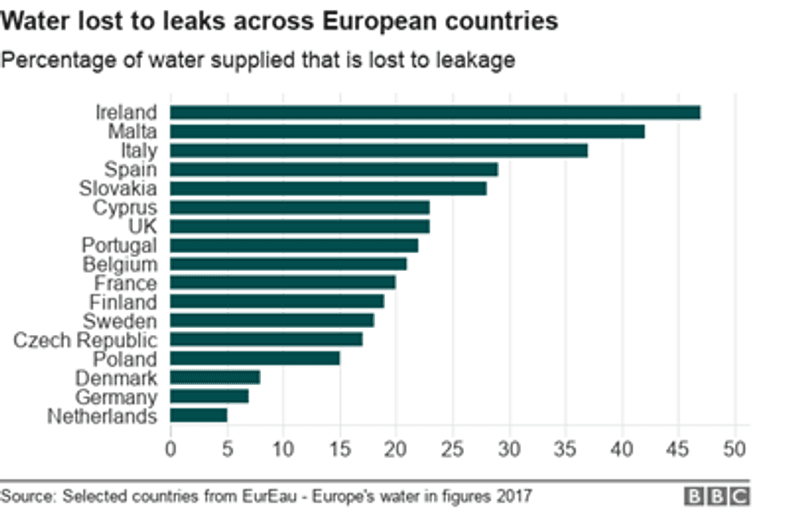
The sheer volume of wastage is staggering. In the US alone, it is estimated that 6 billion gallons of treated water are lost daily, and an estimated 240,000 water main breaks happen every year.[3] In the UK, 3.1bn liters are lost a day, equivalent to 1,180 Olympic swimming pools. As a percentage of water produced, non-revenue water (NRW) accounts for over 20% all water produced in the UK and over 30% in Italy, Malta and Ireland.[4]
Investing in a first-class team with a world-class solution
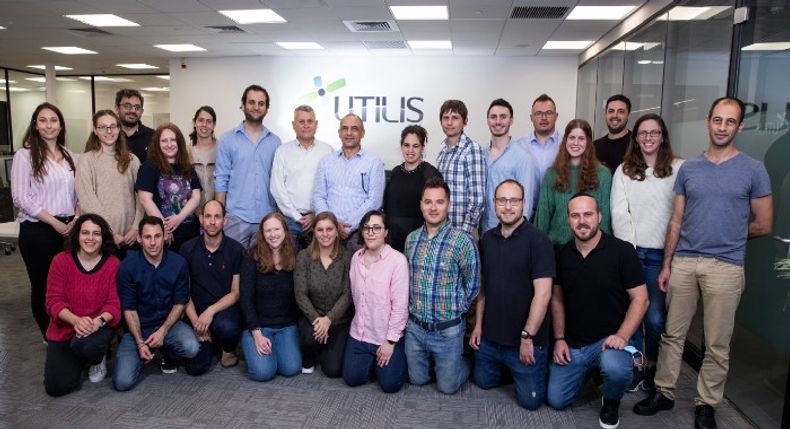
The Utilis team
From its early origins as an academic spinout in Israel, Utilis has attracted an experienced and driven team that has harnessed the exceptional digital talent in the country. As our first investment in Israel, we are extremely excited to work with such a first-class organisation in one of the world’s leading hubs for tech.
Utilis today has 40 employees across its offices in the USA, Israel, and the UK, led by Elly Perets, an experienced software entrepreneur, as CEO. Our investment will help Utilis bring its revolutionary data solutions to clients all over the world, expanding its global team and applying its technology across existing and new use cases.
Utilis also holds five patents and has multiple patents pending for its SAR analytics to be used across a range of sectors. From its original focus on water leaks, Utilis is now a fully-fledged provider of earth observation data to engineering firms, property managers, and transportation planners alike, meaning its easy-to-use GIS format data could help detect potential disasters such as landslides as well as advance Earth’s resource resilience.
It is not often that we get to invest in such a ground-breaking technology that has brought together such a remarkable team — this is going to be a company to watch, and we’re looking forward to the incredible places it could take us.
[1] https://www.worldwildlife.org/threats/water-scarcity
[2] https://www.theguardian.com/global-development/2019/aug/06/us-states-water-stress-new-mexico-california-arizona-colorado 3 https://www.epa.gov/sites/production/files/2015-04/documents/epa816f13002.pdf
[4]https://www.danva.dk/media/3645/eureau_water_in_figures.pdf#page=15
